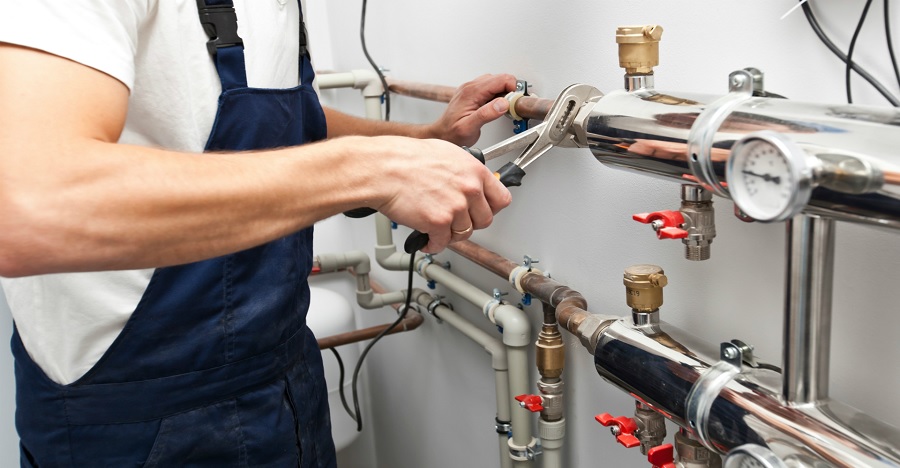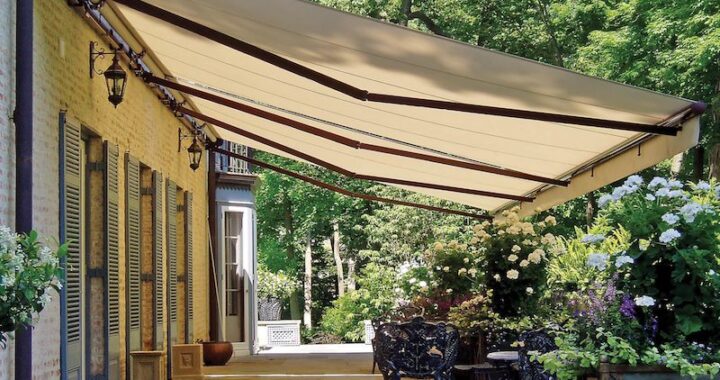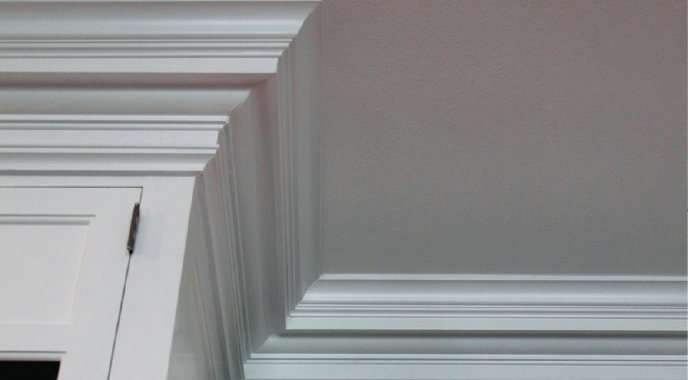5 Basic Residential Plumbing Things Every Homeowner Needs To Know

Your plumbing is more than just pipes that bring and drain water in. There are also traps, valves, and sewer lines that you need to know about to minimize damage and panic in emergencies.
Understanding the basics will help you save money on service calls and even prevent plumbing problems. The most important aspects of residential plumbing are your water supply and drainage systems.
Water Meter
You’ll usually find your water meter near the curb in a small box with a hinged lid. Use a screwdriver to pry open the cover (be careful, as some critters live in these boxes).
Look for a large sweep hand that moves around on the dial. One complete rotation equals one gallon or cubic foot of water on your property.
Most analog meters also have a low-flow indicator resembling a small triangle or star. This indicator will turn on even if no water flows through the meter, indicating a possible leak in your residential plumbing.
Water Shut-Off Valve
Everyone in the house must know where the main water shut-off valve is. You can usually find it in your basement, utility room, or near where the pipe enters the house. It’s common to see a water shut-off valve at outdoor spigots and hose bibs.
The valve looks like a handle that turns right or left. When it’s open, the internal ball has a hole that allows water to flow. If you close the valve, the valve should move from parallel to perpendicular to stop the water flow. Each fixture should also have a shut-off valve to stop the water supply to that particular fixture.
Water Service Lines
In most homes, water lines supply hot and cold running water and sanitary sewer functions. These pipes are a vital part of a home and should be a homeowner’s primary focus on preventive maintenance.
These exterior underground pipes connect the house to the public water main. In the US, millions of water service lines are made of lead, which can contaminate the water inside the home.
To avoid a problem, know what your service line is made of and ask your local water utility if they have records. It’s also a good idea to contact a professional plumber for any repairs or replacements to your water line.
Drain Pipes
Drain pipes carry waste and wastewater away from sinks, tubs, showers, and other household fixtures. They also provide a means of venting the plumbing system.
The drain pipes in a home are typically made of cast iron, galvanized metal, or PVC. The pipe materials offer varying degrees of strength, durability, and cost-effectiveness.
Every drain in a house incorporates a trap that fills with water to keep toxic sewer gases from drifting into the home. These are commonly known as S-traps or P-traps. The accumulated dirt in these traps can clog the drain pipes. A homeowner may experience gurgling sounds and standing water in sinks and bathtubs if this occurs.
Faucets
Faucets are helpful but also impact your home’s design and décor. Learn what’s important to consider before buying a new faucet.
Sink valves, which open and close to regulate temperature and water pressure, are a faucet’s most crucial component. Look for sturdy ones that last a long time and don’t leak.
Aerators screw into kitchen and bathroom faucets to add air to the water flow. They help save water and improve water quality by reducing splashing and catching debris and lead particles. These small fixtures are easy to replace if necessary. Aerators are available in various finishes, including chrome, nickel, and bronze.
Toilets
The plumbing system in a house is a complex mesh of pipes, valves, and fixtures. Understanding how the primary systems work is a vital part of homeownership.
The water supply system relies on pressure to move fresh water from the city through a series of giant pipes called the main line. Individual pipes branch off the main lines to supply each home.
Drainage pipes carry wastewater back to the sewer system. They also depend on vent pipes to balance the pressure in the pipes and prevent sewage gas from seeping into the home. Knowing what not to put down the drains—like cooking grease and eggshells—helps keep them clear of clogs.
Dayton Plumbing Services provides reliable plumbing solutions in Brisbane. From repairs to installations, trust their experienced team for efficient and professional service.


 The Insider’s Guide to a Smooth Home Building Experience
The Insider’s Guide to a Smooth Home Building Experience  Vital role of professional building inspectors- Ensuring safety, quality, and compliance
Vital role of professional building inspectors- Ensuring safety, quality, and compliance  Transform Your Home with a Fresh Coat of Paint: Tips for Success
Transform Your Home with a Fresh Coat of Paint: Tips for Success  Transforming Your Outdoor Spaces with Awnings
Transforming Your Outdoor Spaces with Awnings  Crown Moulding & Why It Needs To Be a Part Of Your Interior Design.
Crown Moulding & Why It Needs To Be a Part Of Your Interior Design.  Why Every Home Deserves a Touch of Handmade Elegance in the Kitchen
Why Every Home Deserves a Touch of Handmade Elegance in the Kitchen